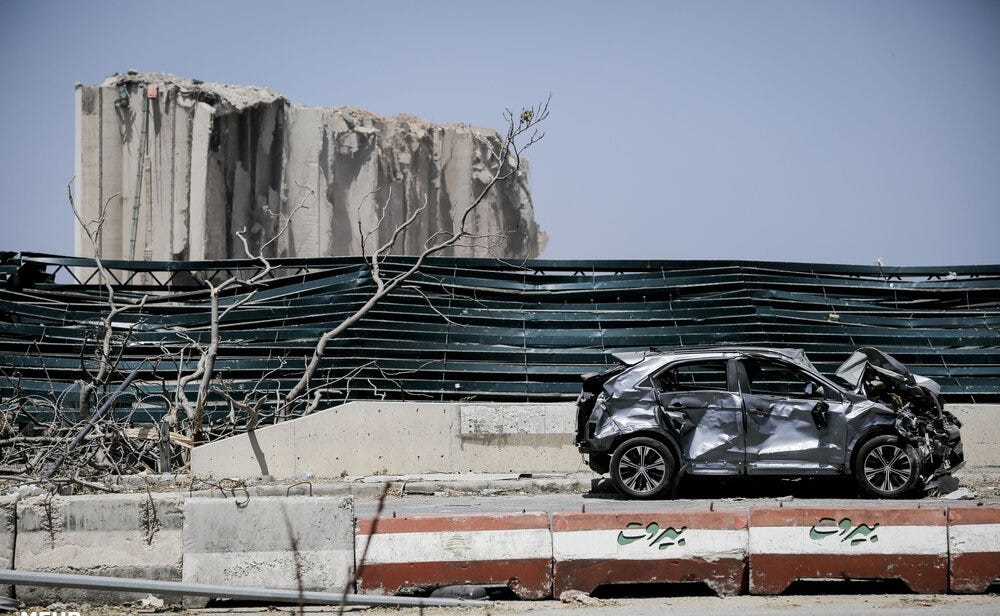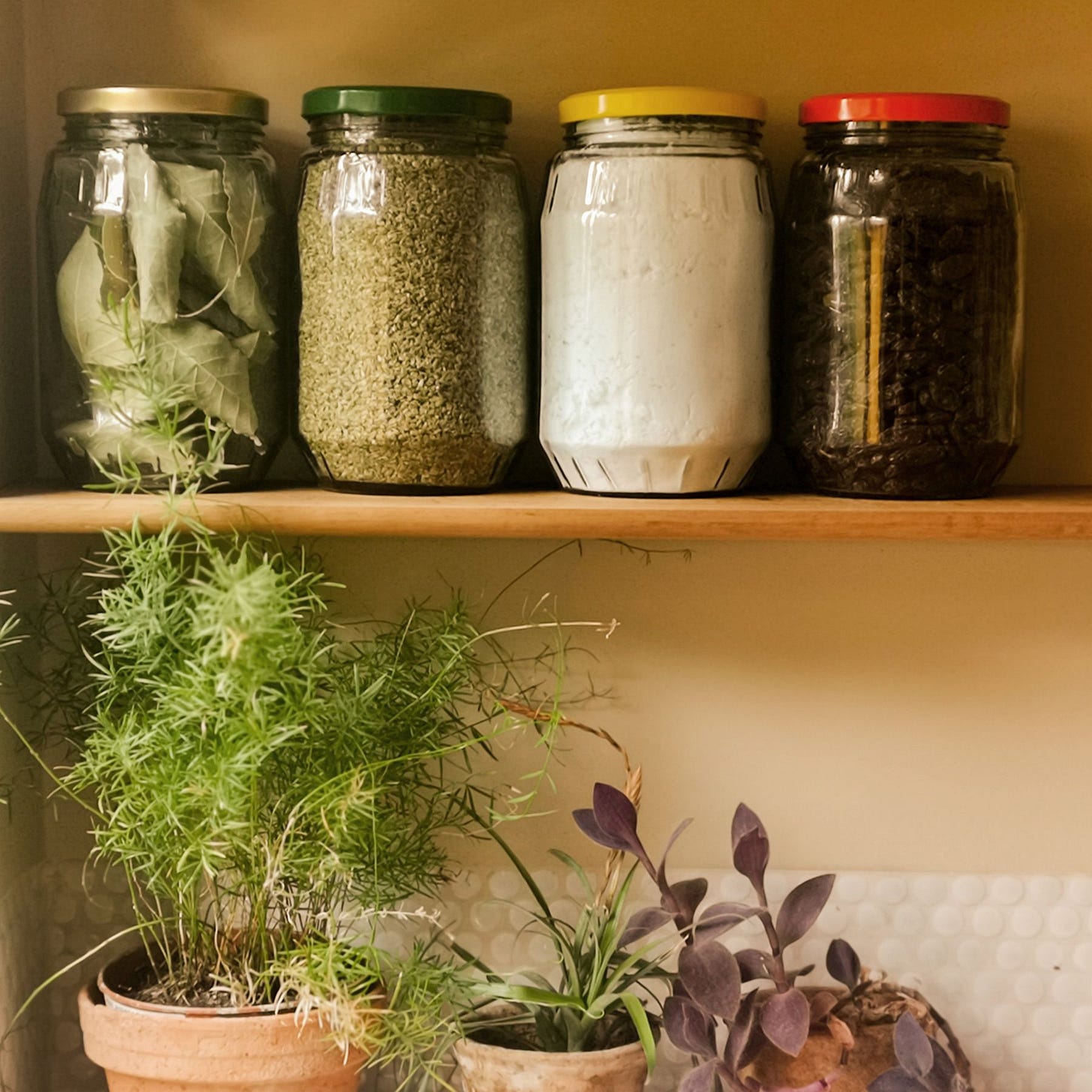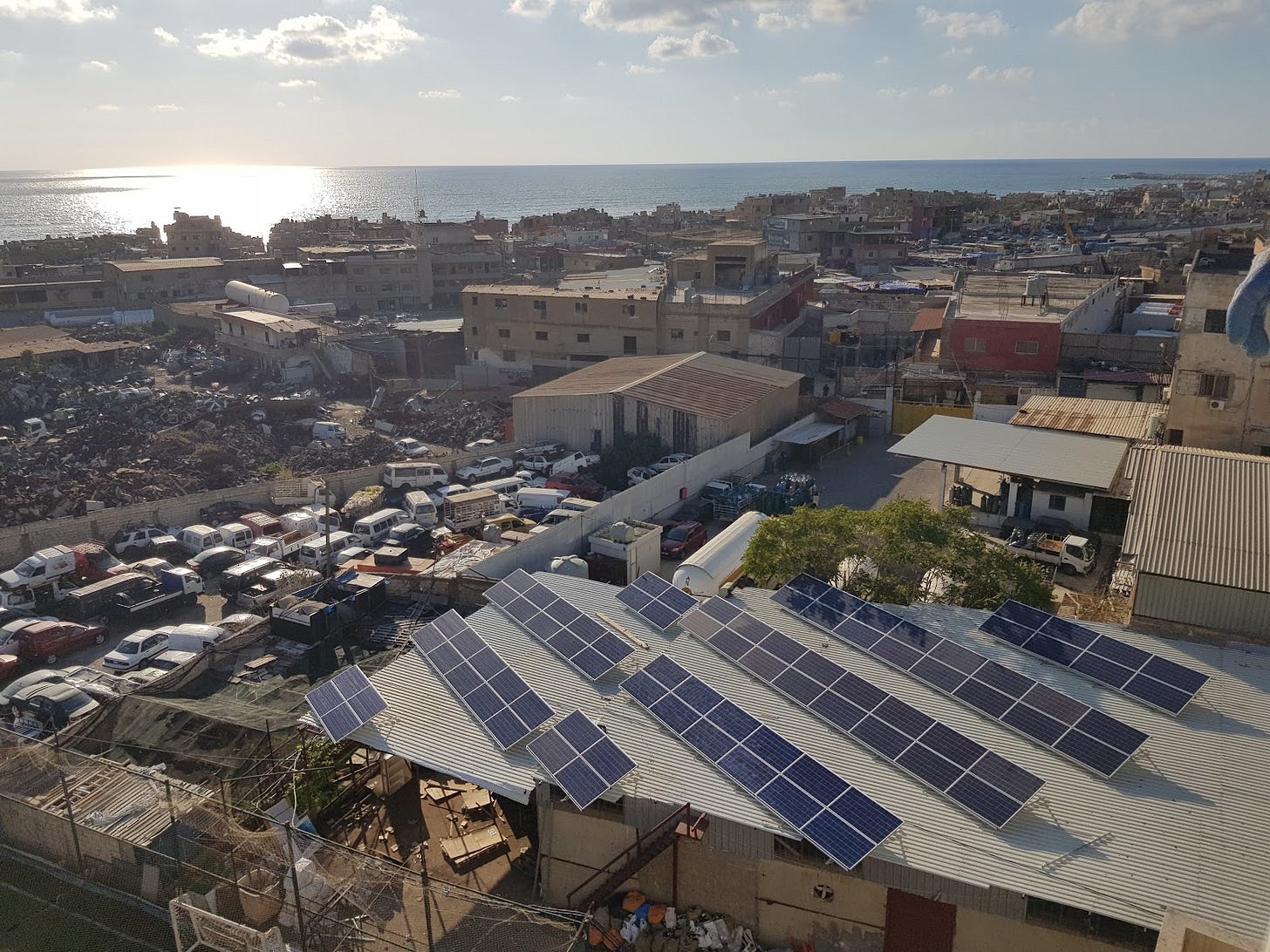Environmental solutions are growing out of Lebanon's collapse
From erecting solar panels to counteract nationwide blackouts to creating recycling facilities, young Lebanese entrepreneurs are responding to economic crisis in their country with green innovation.
Paralysed by one of the worst economic collapses in modern history, Lebanon is suffering from severe fuel and electricity shortages. The series of cascading problems are caused by a foreign exchange crisis, with the Lebanese Pound losing 90% of its value against the U.S dollar since 2019.
Consequently, life has become impossible for local inhabitants, as they go through night-long power cuts followed by hours queuing for fuel in the early morning. The situation leaves little hope for those who, in addition to the daily search for basic commodities, are busy rebuilding their homes devastated by the Beirut explosion of August 4th, 2020.
In the absence of effective measures from local authorities, young members of civil society have taken matters into their own hands.
31-year-old entrepreneur Sam El Khoury co-founded Green Mount Recycling (GMR), one of the first recycling facilities in the country. The company provides a garbage collection and waste management system to respond to the ongoing garbage crisis, which started in 2015 as the government lacked organisational capacity to implement comprehensive waste management strategies.
In a country where environmental challenges seem secondary to most, GMR also offers educational programs to students and youth groups, to raise awareness about the environmental impact of plastic pollution and the benefits of zero waste solutions.
Other members of the environmental movement have come up with innovative solutions to make the most out of the worst challenges Lebanon has undergone.
Following the Beirut port blast, engineer and environmentalist Ziad Abi Chaker launched the Green Glass Recycling Initiative (GGRIL), where he converts hundreds of tonnes of shattered glass into beautiful homeware, including long-stemmed carafes, traditional ibriks and lamp shades.
GGRIL’s creations have become a popular signature of Lebanon’s sustainable design scene, especially amongst those looking for ways to overcome the traumas of the blast.
With the national power grid providing residents only two hours of electricity per day, those who can afford to are rapidly shifting to solar power for their basic energy needs.
Since the start of the crisis, another recently opened waste management company, Recycle Beirut, is running its entire plant with solar panels. They started providing solar solutions to Lebanese residents as a response to electricity shortages and have seen a significant increase in solar panels enquiries in the recent months.
“Lebanon is going towards a total blackout in the coming weeks”, says Rabih Ezzedine, Recycle Beirut’s manager.
“And since the country benefits from over 300 sunny days per year, solar solutions are the only way forward.”
For Ziad Abi Chaker, the depth of the crisis presents an opportunity for change. And whilst these initiatives represent a small drop in the ocean of crises, Lebanon’s youth is getting one step closer to sustainability.
Youmna Abdallah is a Lebanese-Swiss environmental researcher and reporter based in Beirut.
She joined the environmental movement whilst growing up in Lebanon during the post-war reconstruction period, to prevent the privatisation and destruction of natural heritage sites in the region. She started her career in journalism after the Beirut explosion on August 4th, 2020.







